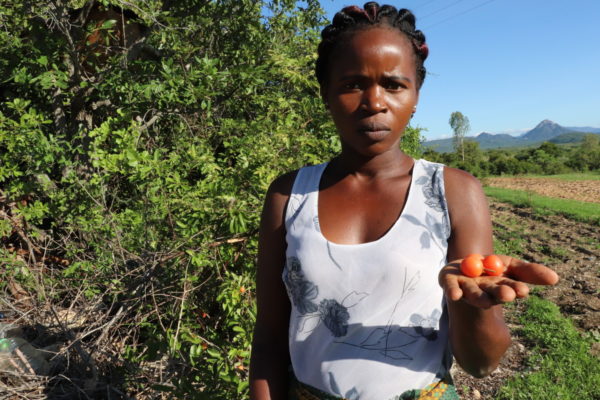“Women farmers are already bearing the brunt of climate change; now they have become frontline workers trying to avert a hunger crisis,” said Stav Zotalis, Head of Global Engagement at ActionAid Australia, a global women’s rights organisation working in 45 countries worldwide.
“Women farmers worldwide are struggling with the triple whammy of lost earnings, increased unpaid care and soaring gender-based violence during COVID-19. Without urgent support women will be forced to sell their land and assets and will not be able to keep growing affordable, healthy food for their families and communities, which would plunge more people into hunger.”

The UN’s State of Food Security and Nutrition in the World report, released 13 July, shows 750 million – or nearly one in ten people in the world – were exposed to severe levels of food insecurity while an estimated total of 2 billion people in the world did not have regular access to safe, nutritious and sufficient food in 2019.
“Hunger has already been on the rise for the past five years due to climate change, putting the global goal to end hunger by 2030 shamefully off track,” said Ms Zotalis.
“It is urgent for COVID-19 recovery plans to prioritise investment in sustainable, climate-resilient local food systems to ensure that people can survive even greater challenges as the climate crisis intensifies. The Australian Government has a role to play in ensuring adequate financing for the scaling up of this investment.”
The COVID-19 crisis is pushing millions more people into food poverty globally. The UN’s report suggests the pandemic may see up to 132 million more people become undernourished globally this year.
Before the pandemic, ActionAid was already responding to a food and climate crisis across Southern Africa caused by the worst drought in the region in 35 years, as well as two cyclones and flooding, which have left 45 million people experiencing food insecurity.
In Zimbabwe, before COVID-19 hit, 7.7 million people were already food insecure and employment was as high as 80%. The climate crisis has shortened the agricultural season leaving poor, smallholder farmers, the majority of whom are women residing in rural areas, with dramatically reduced yields.
Nearly 9 million Zimbabweans are expected to be suffering from hunger by October, while the price of maize has soared by 66% to $5 per 20kg due to high demand.
ActionAid is calling for:
- Debt cancellation and emergency liquidity support for developing countries so that they can expand social protection, health care and other essential services to rural communities and other groups hard-hit by COVID-19.
- Longer-term COVID-19 recovery plans to include significant investment in creating green livelihoods in sustainable, climate-resilient agriculture with a focus on women farmers.
For more information & interviews: Liz Pick, Media Manager on 0422 105 840 or [email protected]